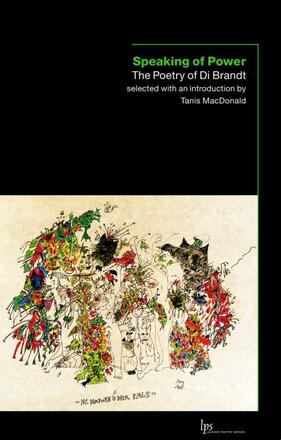
Description
Speaking of Power: The Poetry of Di Brandt introduces the reader to the lyric power and political urgency of the poetry of Di Brandt, providing an overview of her poetry written during a prolific and revolutionary twenty-year period.
Beginning with her early poetic inquiries into the dynamics of gender, religion, and the politics of language, Brandt examines the use and abuse of power as a cultural issue, emphasizing cross-cultural and domestic relationships. Particularly engaged with questions of motherhood, the land, violence and reparation, feminism, and spirituality, Brandt explores ecopoetics, an ecology of poetry, as a possible antidote to the cultural despair of the twenty-first century.
Editor Tanis MacDonald’s introduction outlines the major movements of Brandt’s work, emphasizing the relationship of language to power and the value of a dissenting voice in a forceful cultural poetics. An afterword by Brandt completes the volume.
Reviews
``The quest for a wider audience for poetry may be quixotic, but this series makes a serious attempt to present attractive, affordable selections that speak to contemporary interests and topics that might engage a younger generation of readers. Yet it does not condescend, preferring to provide substantial and sophisticated poets to these new readers. At the very least, these slim volumes will make very useful introductory teaching texts in post-secondary classrooms because they whet the appetite without overwhelming.''
- Paul Milton
``The introductions and afterwords, if done properly, can help the first-time reader to contextualize and grapple with the imaginative and intellectual material they are about to encounter. These essays can be invaluable in helping the new reader to get a broad enough sense of the poet in question to be able to read the poems from a slightly more informed perspective.'' (about the Laurier Poetry series) ``I found MacDonald's introduction to Speaking of Power: The Poetry of Di Brandt to be very illuminating. Her research was impeccable, and well-suited to the fiery, furious, rebellious poetry it sets up. MacDonald deftly summarizes the arc of Brandt's intense career, emphasizing her (Brandt's) belief that `poetry must be, at its core, concerned with the political power of language' (ix), as well as her decidedly feminist and radically spiritual ecopoetics.... In her afterword, Brandt rais[es] the question, are we, as a society, simply too comfortable to be disturbed by poetry's insistent voice? Too well-fed? When will we care? asks Brandt....Her afterword is both emotionally and intellectually stimulating....Here is poetry (and a poet) with a vision....Can I get a `hell yeah'? And a `hell yeah' for MacDonald too....Poetry like Brandt's...deserves the larger audience WLUP is attempting to win for it. I am crossing my fingers, and hoping that it succeeds.''
- Jennifer Houle
``The books are fairly slim (ranging from fifty-six to eighty pages), but each provides a decent outline of the respective poet's career, style, and dominant concerns. The introductory essays are straightforward and informative--they provide a useful interpretive framework for anyone coming to this poetry for the first time. These volumes seem designed for students and educators; each offers a more complete picture of the poet than one would get from an anthology.''
- University of Toronto Quarterly, Letters in Canada 2006, Volume 77, Number 1, Winter 2008